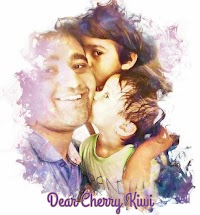Human rights are "rights and freedoms to which all humans are entitled." Proponents of the concept usually assert that everyone is endowed with certain entitlements merely by reason of being human. Human rights are thus conceived in a universalist and egalitarian fashion. Such entitlements can exist as shared norms of actual human moralities, as justified moral norms or natural rights supported by strong reasons, or as legal rights either at a national level or within international law. However, there is no consensus as to the precise nature of what in particular should or should not be regarded as a human right in any of the preceding senses, and the abstract concept of human rights has been a subject of intense philosophical debate and criticism.
The human rights movement emerged in the 1970s, especially from former socialists in eastern and western Europe, with major contributions also from the United States and Latin America. The movement quickly gelled as social activism and political rhetoric in many nations put it high on the world agenda.By the 21st century, Moyn has argued, the human rights movement expanded beyond its original anti-totalitarianism to include numerous causes involving humanitarianism and social and economic development in the Third World.
Many of the basic ideas that animated the movement developed in the aftermath of the Second World War, culminating in its adoption by the Universal Declaration of Human Rights in Paris by the United Nations General Assembly in 1948. While the phrase "human rights" is relatively modern the intellectual foundations of the modern concept can be traced through the history of philosophy and the concepts of natural law rights and liberties as far back as the city states of Classical Greece and the development of Roman Law. The true forerunner of human rights discourse was the concept of natural rights which appeared as part of the medieval Natural law tradition, became prominent during the Enlightenment with such philosophers as John Locke, Francis Hutcheson, and Jean-Jacques Burlamaqui, and featured prominently in the political discourse of the American Revolution and the French Revolution.
All human beings are born free and equal in dignity and rights. They are endowed with reason and conscience and should act towards one another in a spirit of brotherhood.—Article 1 of the United Nations Universal Declaration of Human Rights (UDHR)
United Nations
Main article: United Nations
The United Nations (UN) as an intergovernmental body seeks to apply international jurisdiction for universal human-rights legislation. Within the UN machinery, human-rights issues are primarily the concern of the United Nations Security Council and the United Nations Human Rights Council, and there are numerous committees within the UN with responsibilities for safeguarding different human-rights treaties. The most senior body of the UN in the sphere of human rights is the Office of the High Commissioner for Human Rights. The United Nations has an international mandate to:
| “ | ...achieve international co-operation in solving international problems of an economic, social, cultural, or humanitarian character, and in promoting and encouraging respect for human rights and for fundamental freedoms for all without distinction as to race, gender, language, or religion. | ” |
—Article 1–3 of the United Nations Charter
| ||
Human Rights Council
The United Nations Human Rights Council, created at the 2005 World Summit to replace the United Nations Commission on Human Rights, has a mandate to investigate violations of human rights. The Human Rights Council is a subsidiary body of the General Assembly and reports directly to it. It ranks below the Security Council, which is the final authority for the interpretation of the United Nations Charter.Forty-seven of the one hundred ninety-one member states sit on the council, elected by simple majority in a secret ballot of the United Nations General Assembly. Members serve a maximum of six years and may have their membership suspended for gross human rights abuses. The Council is based in Geneva, and meets three times a year; with additional meetings to respond to urgent situations.
Independent experts (rapporteurs) are retained by the Council to investigate alleged human rights abuses and to provide the Council with reports.
The Human Rights Council may request that the Security Council take action when human rights violations occur. This action may be direct actions, may involve sanctions, and the Security Council may also refer cases to the International Criminal Court (ICC) even if the issue being referred is outside the normal jurisdiction of the ICC.
The United Nations Security Council has the primary responsibility for maintaining international peace and security and is the only body of the UN that can authorize the use of force. It has been criticized for failing to take action to prevent human rights abuses, including the Darfur crisis, the Srebrenica massacre and the Rwandan Genocide.For example, critics blamed the presence of non-democracies on the Security Council for its failure regarding.
On April 28, 2006 the Security Council adopted resolution 1674 that reaffirmed the responsibility to protect populations from genocide, war crimes, ethnic cleansing and crimes against humanity" and committed the Security Council to action to protect civilians in armed conflict.





